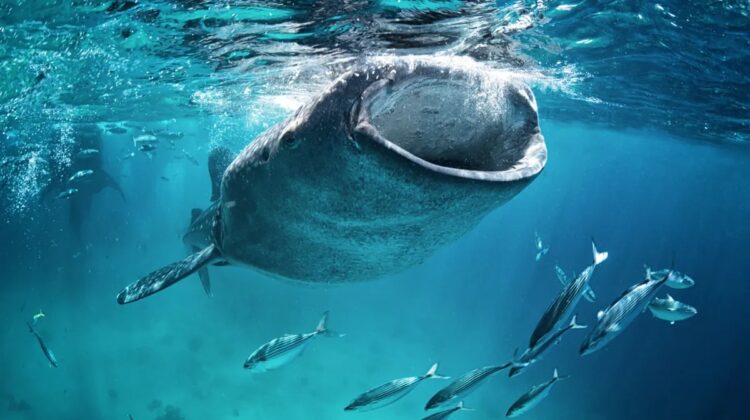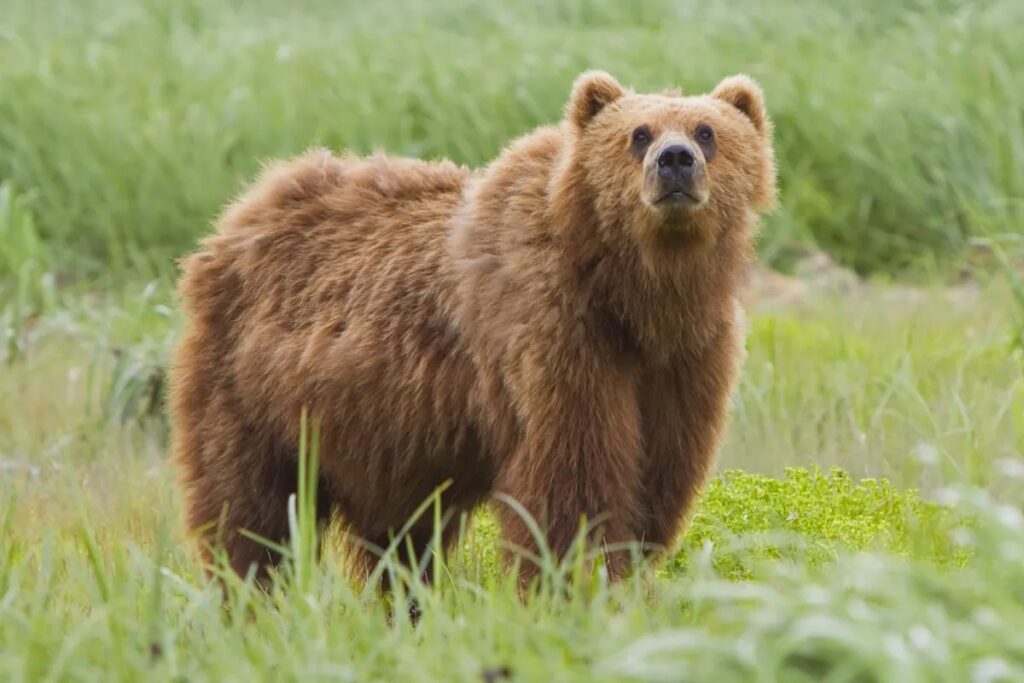
Whale sharks might serve as an example to young children who are afraid to widen their horizons at the dinner table, as being omnivorous has definitely helped this species grow to be large and robust. While it has long been known that the largest fish in the sea consumes krill, fresh study has revealed that they can also benefit from ingesting plant material.
The findings, published in the journal Ecology, reveal that the whale shark (Rhincodon typus) is the world’s largest omnivore.
“This forces us to reconsider everything we thought we knew about what whale sharks consume,” said Dr Mark Meekan of the Australian Institute of Marine Science in a release. “As well as what they’re doing out in the open sea.”
The finding dethrones the Kodiak bear as the World’s Biggest Omnivore, since despite being the world’s largest bears (weighing up to 680 kilograms/1,500 pounds), they have nothing on 10-meter-long whale sharks that may weigh 19,000 kg (42,000 pounds).

Whale sharks have been seen picking up bucket loads of krill as filter feeders at Western Australia’s Ningaloo Reef. However, a comparison of likely food samples in the environment to their tissues revealed that they, like the world’s biggest mammals, enjoy vegetation.
“On land, all of the largest creatures have always been herbivores,” Meekan explained.
“We used to think that the very enormous animals in the water, such whales and whale sharks, were eating one step up the food chain on shrimp-like organisms and little fishes.” It turns out that the systems of evolution on land and in water aren’t so dissimilar after all.”
Sargassum, a native seaweed, appears to have gotten included into whale shark diets over time. This implies that when whale sharks make their yearly migration to Western Australia, they’ll be feasting on more than just krill.
The researchers were able to rule out the idea that seaweed was being swept up accidently but not digested by using tissue samples from whale sharks and evaluating their composition. The presence of specific isotopes suggests that whale sharks can thrive on plant matter and that krill was really less thoroughly digested than predicted.
“It’s extremely surprising since they don’t have a fatty acid or stable isotope signature of a krill-feeding animal in their tissue,” said Dr Patti Virtue of the University of Tasmania’s Institute for Marine and Antarctic Studies. “[Their] faeces did suggest that they were ingesting krill, but not much of it was metabolized.”

Leave a Reply